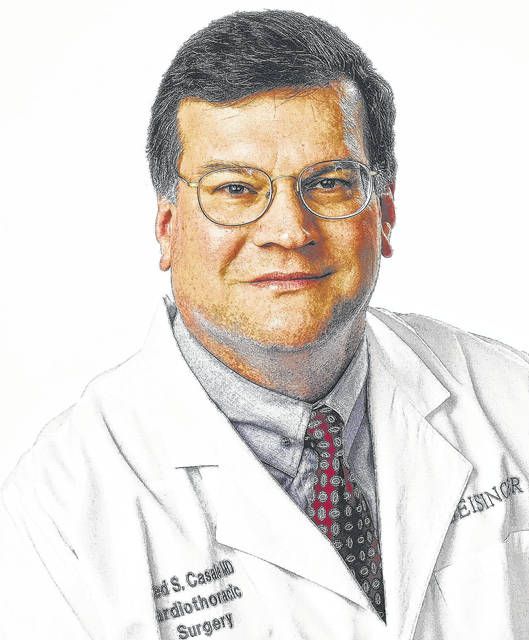Did you know a single organ and tissue donor can save or enhance the lives of up to 50 people?
That’s quite an impact for one selfless decision.
Throughout April, we recognized National Donate Life Month, so to spread awareness of the importance of organ donation, we’ll address what it means to have “organ donor” on your driver’s license.
With all the successes in transplant surgery and saving lives, there’s still a lot of work to do to register more organ and tissue donors. If you register as a donor – something you can easily choose when you renew your driver’s license – you have the potential to save lives and reduce waiting lists for multiple organs.
As an organ donor, you can give up to eight people a second chance at life through donation of your:
• Heart
• Liver
• Lungs
• Kidneys
• Pancreas
• Intestines
In addition to organs, donors can also give:
• Tissue
• Bones
• Skin
• Heart valves
• Corneas
So, you see how dozens of people can be helped when a donor passes away and leaves these gifts. Having done heart and heart-lung transplants earlier in my career I can assure you that the care a patient receives prior to their death is not affected by or influenced by their status as an organ donor.
Letting someone die to get at their organs … just another “urban legend” we need to refute!
People in need of an organ transplant are placed on waiting lists until they can be matched with potential donors. In some cases, as with kidney donation, transplant patients can seek living donors, but not every patient is so fortunate to have someone willing to donate who is also a match.
When determining if a recipient is a match for a donor, we must consider:
• Blood type
• Tissue type
• Body size
• Severity of their medical condition
• Distance they live from the donor
• Length of time they’ve waited for a new organ
Without suitable matches, the waiting lists get longer.
After the death of a potential donor, hospital staff contact the Pennsylvania chapter of Gift of Life, which helps coordinate organ donation in the state. Staff review the potential donor’s medical history to determine whether they meet donation requirements, and if the person was a registered donor, staff will discuss donation options with their family.
When someone is not a registered donor, their family is given the opportunity to decide on their behalf whether to donate organs and tissues.
If the donation process proceeds, the donor’s information is entered into a national database. This information helps identify the best and most in-need recipients and includes:
• Blood type
• Height
• Weight
• Hospital zip code
When a match is found, the organ is quickly transported to a hospital close to the recipient, and the transplant procedure is typically done within 24 hours. All medical expenses related to transplant are covered by the recipient’s insurance.
A few weeks after the transplant, Gift of Life sends a letter to the donor’s family to let them know what was donated. Gift of Life also offers services such as bereavement counseling, memorial events to honor loved ones and correspondence opportunities.
Recipients receive follow-up care to identify any potential changes in organ function or overall health.
It’s quick and easy to register to be an organ donor. Next time you’re renewing your driver’s license or state identification card, you can add the donor designation to your record. And if you don’t want to wait, you can do it any time at donatelifepa.org.
- Community Bank to open two new branches in Lehigh Valley - April 17, 2024
- “Agnes’ documentary to be screened at River Common on Friday, June 21 - April 15, 2024
- Luzerne County Arts & Entertainment Hall of Fame announces 2024 induction class - April 13, 2024
Dr. Alfred Casale, a cardiothoracic surgeon, is chief medical officer for surgical services for Geisinger and chair of the Geisinger Heart Institute. Readers may write to him via ae@timesleader.com.





